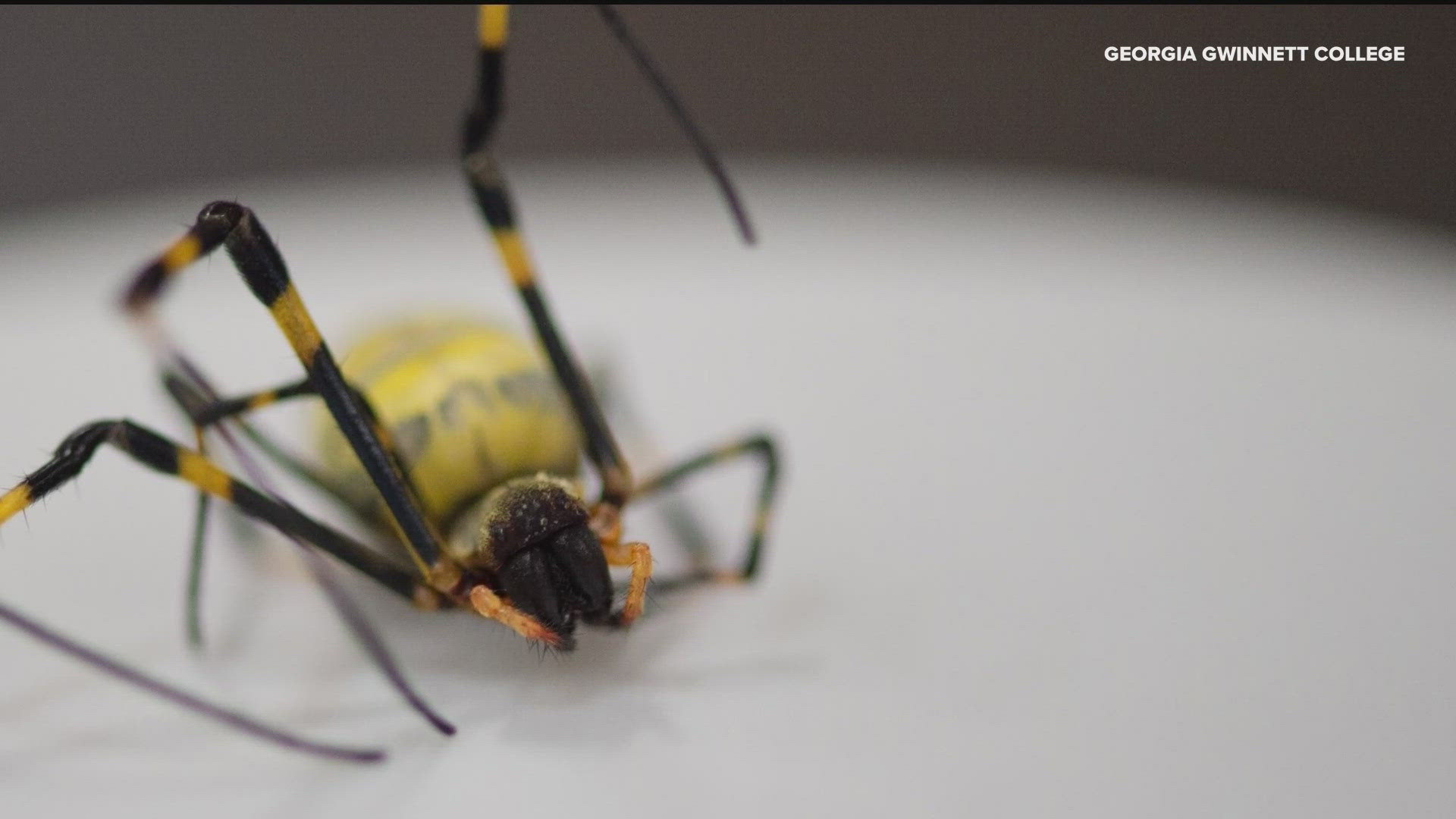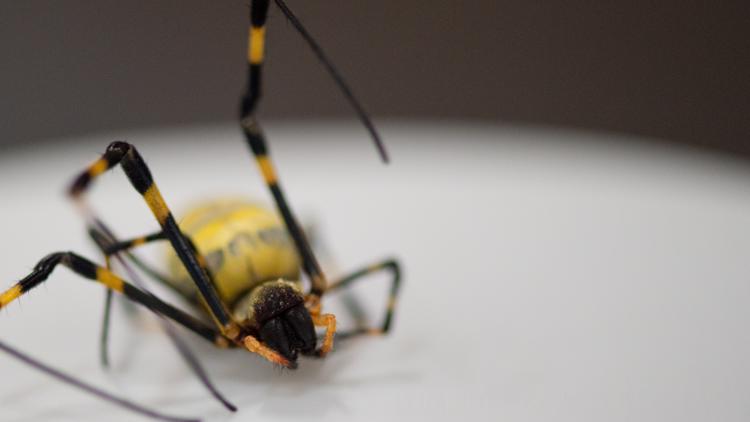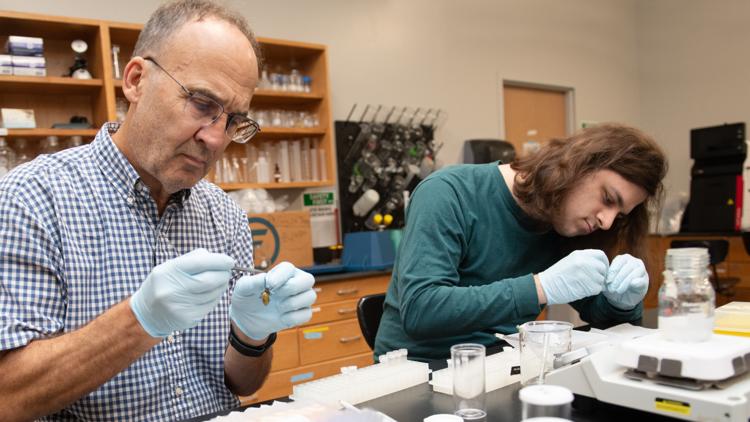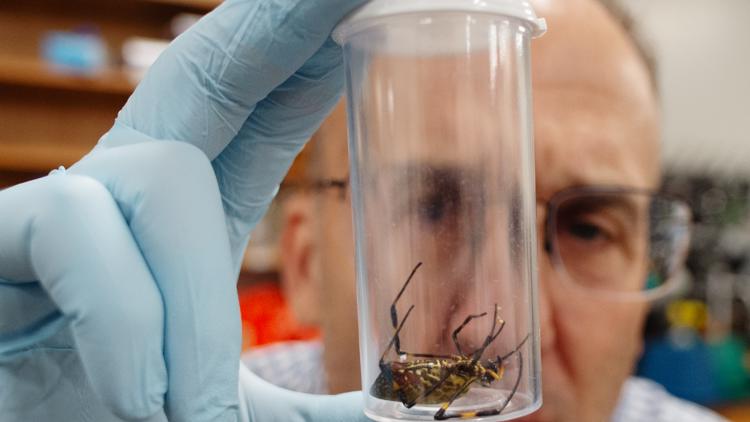GWINNETT COUNTY, Ga. — A Georgia Gwinnett College professor and student duo discovered that a popular spider seen in Georgia is infected with bacteria.
Joro spiders traveled from Asia to the United States about 10 years ago and were first spotted in the Peach State, according to a release by the college. The spiders are most visible starting in September and by mid-October, they lay eggs that are within a white silk sac. Each sac is typically attached to a flat surface like leaves and tree bark and contains as many as 500 eggs.
But what hasn't been known about these spiders is if they carry any diseases -- particularly ones that could harm people.
So, Georgia Gwinnett College's professor of biology, Dr. James Russell and student Nicholas Mizera, took to work. Russell was studying the genetic makeup of the spider to see if there was any genetic diversification. The pair started to extract genes from the spiders.


"There was very little genetic diversity, so on a whim, we decided to look for the presence of Wolbachia," Mizera said. "It's a common bacteria found in about half of all insect species, like butterflies, moths and bees."
And that's when they discovered that Joro spiders are infected with Wolbachia.
But what does this mean, and why does it matter?
The good news is Russell said that the Wolbachia would not be transmitted to humans.
In terms of how the bacteria affects the spiders, they hypothesize that it creates reproductive barriers and incompatibility issues for the spider. According to the hypothesis, when an infected male mates with an uninfected female, the female is sterilized. But when both the male and female are infected, they can still produce offspring. Russell also said that only the female spiders can pass the bacteria along.
"This particular Wolbachia effect can potentially be used to control populations," Russell said.
In general, more detailed experiments are still needed to test this hypothesis. However, Russell stated that the idea of population control could be applied to other insects, like mosquitos, which are known to carry diseases that can infect humans.
"Having this information could help us find a better and less harmful way to control insects that are known to harm humans," Russell said.
Mizera graduated from GGC in 2023 and is doing research while pursuing a doctorate. The pair are currently working on a paper to present their findings about the Joro spider.






